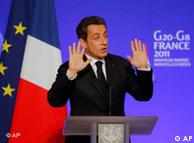Interior ministers of the G-8 and a half countries in Europe, Africa and Latin America are directly affected by the problem of drug trafficking, including Spain, agreed yesterday in Paris to propose the creation of a global fund to finance the fight against drug trafficking, particularly cocaine. The idea, advanced by French President Nicolas Sarkozy, current president of the G-8-, mainly aims to help West African countries, which have become one of the preferred transit of cocaine from Latin America towards Europe, which lack the means to effectively confront the traffickers.
Part of this fund would be worth the money and property confiscated from drug dealers, a practice that takes place in countries like Spain or France and that the meeting yesterday intended to extend to all countries involved in the fight against drugs : from producers to consumers, through transit countries.
The feasibility of the establishment of this fund will be considered by the United Nations Office on Drugs and Crime (UNODC), but the road is long and tortuous expected, especially in the current context of budget cuts. The action plan agreed yesterday twenty countries participating in the meeting, escorted by a dozen international bodies also expected to intensify the collection and operation of information-especially in Latin America, facilitating actions against maritime transport drug-even in territorial waters of another country, and improve judicial and police action against drug trafficking in those countries where it has more weaknesses.
If France wanted to focus on the cocaine problem is because the use of this drug in Europe has grown exponentially in the last decade, the number of consumers has risen over ten years from 2 to 4.5 million, and today captures 20 % of the cocaine produced in Latin America. According to UNODC estimates, the global cocaine market moved in 2009 about 84,000 million dollars.
In recent years, due to improved police efficiency, direct traffic in cocaine by sea from Latin America and the coasts of Europe, Spain and Portugal, has declined, forcing traffickers to explore alternative routes. Spanish Interior Minister Alfredo Perez Rubalcaba, said that the cocaine seized by Spanish police has halved, from 50 to 25 tons annually in the last two years.
"Today, passes through Spain less cocaine was going," he said. Cocaine, however, continues to reach through other channels. An increasing share of this traffic now passes through the West African countries, where it redistributes different routes to Europe, through Turkey, for example. Such flow is, as he warned the French interior minister, Claude Gueant, a serious problem for the political stability of these countries, as demonstrated by the "narco-coup in Guinea-Bissau 2010." 


Part of this fund would be worth the money and property confiscated from drug dealers, a practice that takes place in countries like Spain or France and that the meeting yesterday intended to extend to all countries involved in the fight against drugs : from producers to consumers, through transit countries.
The feasibility of the establishment of this fund will be considered by the United Nations Office on Drugs and Crime (UNODC), but the road is long and tortuous expected, especially in the current context of budget cuts. The action plan agreed yesterday twenty countries participating in the meeting, escorted by a dozen international bodies also expected to intensify the collection and operation of information-especially in Latin America, facilitating actions against maritime transport drug-even in territorial waters of another country, and improve judicial and police action against drug trafficking in those countries where it has more weaknesses.
If France wanted to focus on the cocaine problem is because the use of this drug in Europe has grown exponentially in the last decade, the number of consumers has risen over ten years from 2 to 4.5 million, and today captures 20 % of the cocaine produced in Latin America. According to UNODC estimates, the global cocaine market moved in 2009 about 84,000 million dollars.
In recent years, due to improved police efficiency, direct traffic in cocaine by sea from Latin America and the coasts of Europe, Spain and Portugal, has declined, forcing traffickers to explore alternative routes. Spanish Interior Minister Alfredo Perez Rubalcaba, said that the cocaine seized by Spanish police has halved, from 50 to 25 tons annually in the last two years.
"Today, passes through Spain less cocaine was going," he said. Cocaine, however, continues to reach through other channels. An increasing share of this traffic now passes through the West African countries, where it redistributes different routes to Europe, through Turkey, for example. Such flow is, as he warned the French interior minister, Claude Gueant, a serious problem for the political stability of these countries, as demonstrated by the "narco-coup in Guinea-Bissau 2010."



- Univision's "Aqui y Ahora" Moves To Sunday Providing Viewers With Award-Winning Investigative Reporting (30/03/2011)
- VIDEOS: Grand Finals of the World Pro 2011 (21/04/2011)
- Whitney Houston Headed Back To The Big Screen (09/05/2011)
- Lucas Cosmas Fondo : Kenya (06/04/2011)
- News from the Trenches: (07/03/2011)
No comments:
Post a Comment